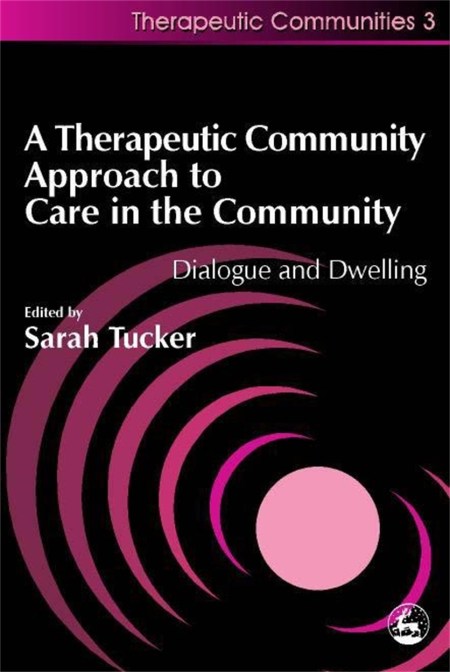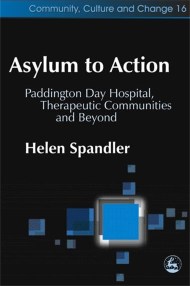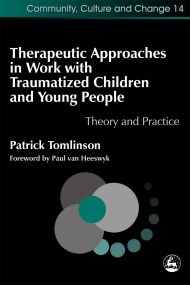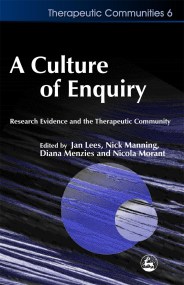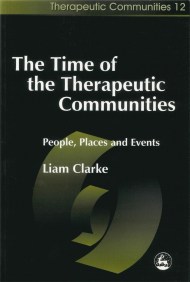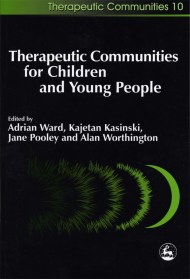A Therapeutic Community Approach to Care in the Community
On sale
1st April 2000
Price: £25
Genre
Mental Health Services / Psychoanalytical Theory (freudian Psychology) / Psychotherapy / Social Work / Social, Group Or Collective Psychology
Selected:
ebook / ISBN-13: 9781846429712
An intriguing, thought- provoking and thoroughly valuable book, as much for the imagination it releases as for the particular model that it describes. I would hope that this is what they were aiming at.’
– Therapeutic Communities
‘The therapeutic community approach is described as educational, with many aspects of ordinary living shown to people by fellow residents and staff. Learning can also take place through activities such as drama, art and gardening. A basic tenet is that individuals with enduring psychological troubles are not permanently incapacitated, as many mental health staff assume, and can be supported to interdependence with others. This is a salient point of the book. The independence espoused by community care theory can be very lonely. People who have not learned interdependence (or who have had their trust destroyed) can move towards a more satisfying way of life while staying in a safe community.’
– Community Care
Applying therapeutic community principles to community care, this book advocates the active engagement of clients in their own lives and promotes the development of a shared sense of responsibility between client and carer.
The contributors define care and dwelling as central to human life, and examine the psychological significance of having a place of one’s own. They argue that the client should be encouraged to participate actively in the provision of these, rather than remaining a passive recipient, in order to gain a sense of being part of a social environment. However, a dwelling is more than a physical space, and the fundamental importance of community, and of dialogue in creating that community, is also explored. The contributors provide a philosophical framework for these ideas, but they also discuss them in terms of the practicalities of a therapeutic community: how interactions can be developed and how the tensions of communal living can be defused.
Therapeutic Community Approach to Care in the Community focuses on the practical implications and use of dialogue, language and education in community care. A stimulating contribution to the debate on the future of community care, the book will interest all mental health professionals concerned with working with their clients in terms of their whole environment, not just in isolation.
– Therapeutic Communities
‘The therapeutic community approach is described as educational, with many aspects of ordinary living shown to people by fellow residents and staff. Learning can also take place through activities such as drama, art and gardening. A basic tenet is that individuals with enduring psychological troubles are not permanently incapacitated, as many mental health staff assume, and can be supported to interdependence with others. This is a salient point of the book. The independence espoused by community care theory can be very lonely. People who have not learned interdependence (or who have had their trust destroyed) can move towards a more satisfying way of life while staying in a safe community.’
– Community Care
Applying therapeutic community principles to community care, this book advocates the active engagement of clients in their own lives and promotes the development of a shared sense of responsibility between client and carer.
The contributors define care and dwelling as central to human life, and examine the psychological significance of having a place of one’s own. They argue that the client should be encouraged to participate actively in the provision of these, rather than remaining a passive recipient, in order to gain a sense of being part of a social environment. However, a dwelling is more than a physical space, and the fundamental importance of community, and of dialogue in creating that community, is also explored. The contributors provide a philosophical framework for these ideas, but they also discuss them in terms of the practicalities of a therapeutic community: how interactions can be developed and how the tensions of communal living can be defused.
Therapeutic Community Approach to Care in the Community focuses on the practical implications and use of dialogue, language and education in community care. A stimulating contribution to the debate on the future of community care, the book will interest all mental health professionals concerned with working with their clients in terms of their whole environment, not just in isolation.
Newsletter Signup
By clicking ‘Sign Up,’ I acknowledge that I have read and agree to Hachette Book Group’s Privacy Policy and Terms of Use

